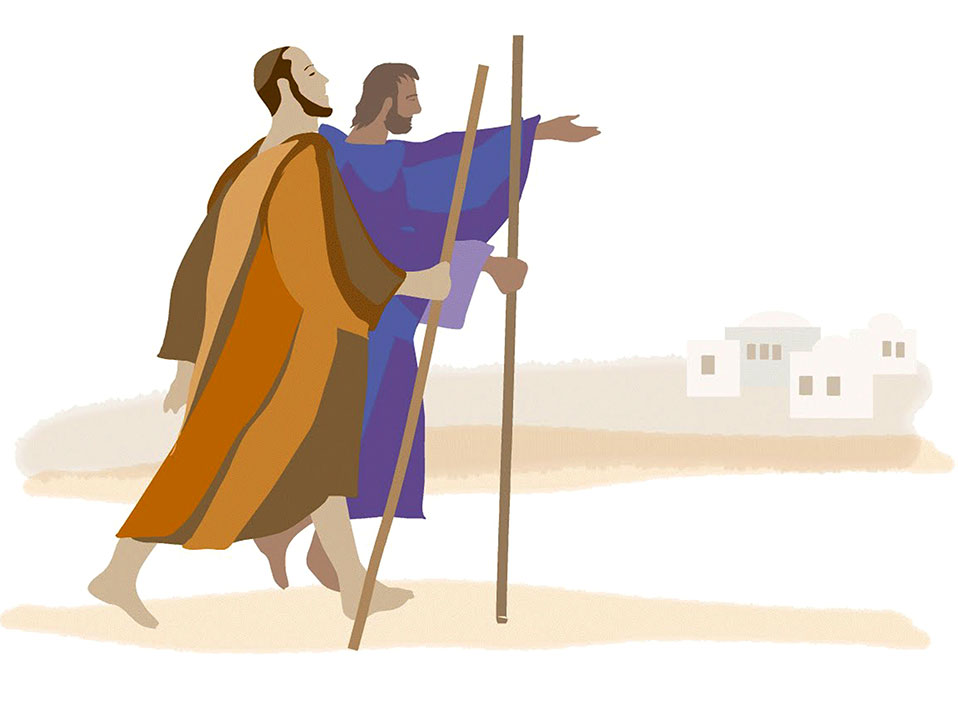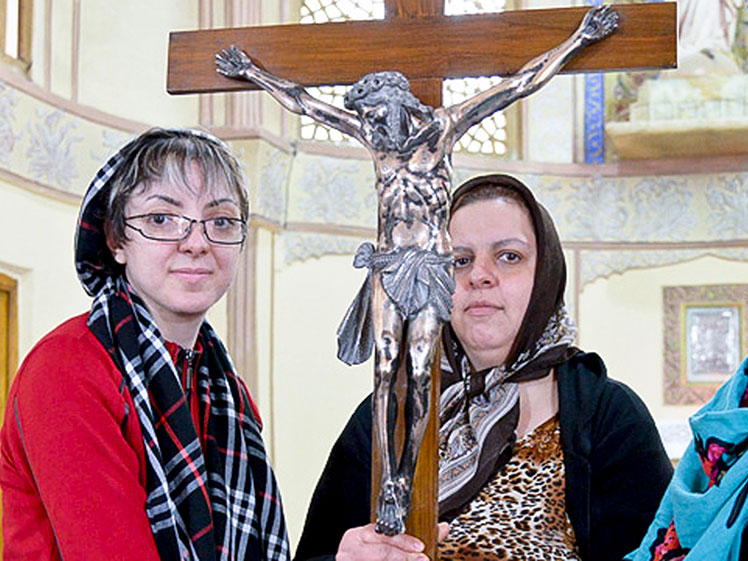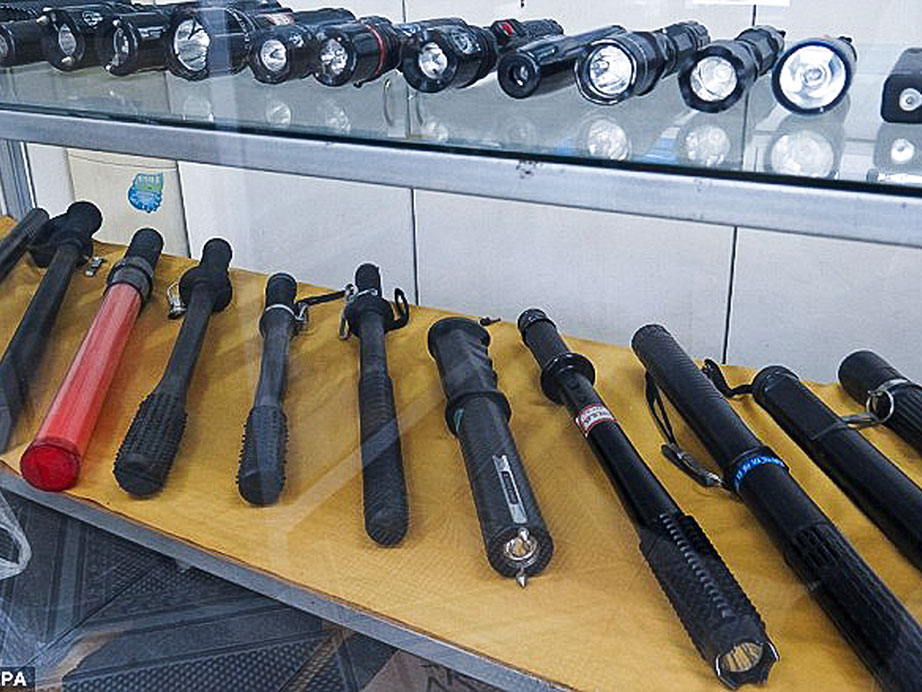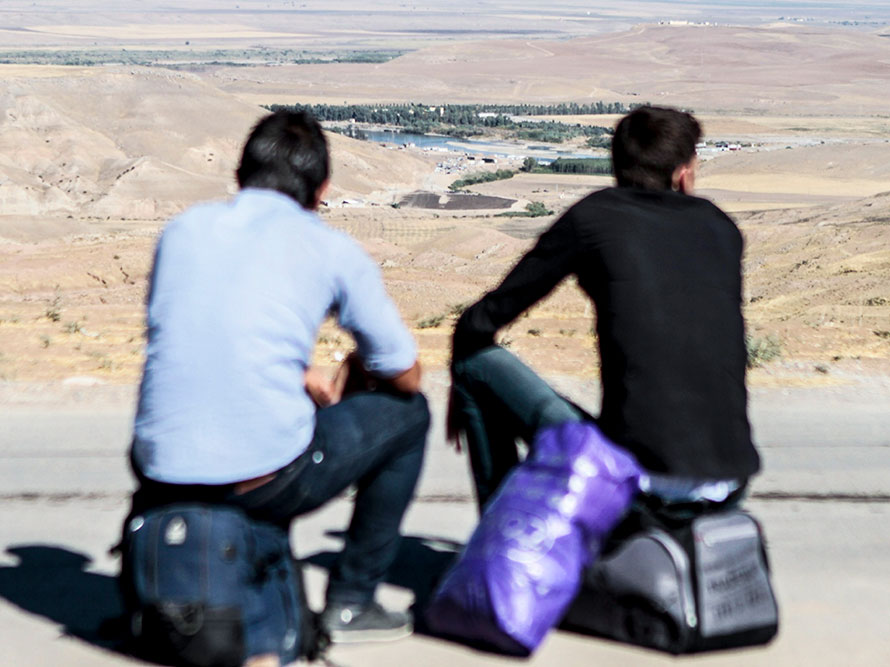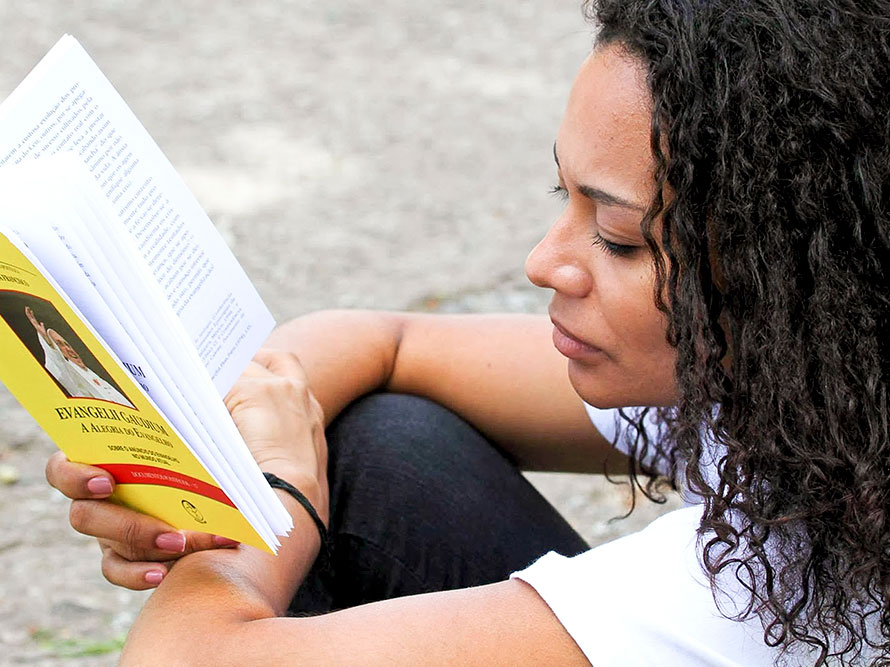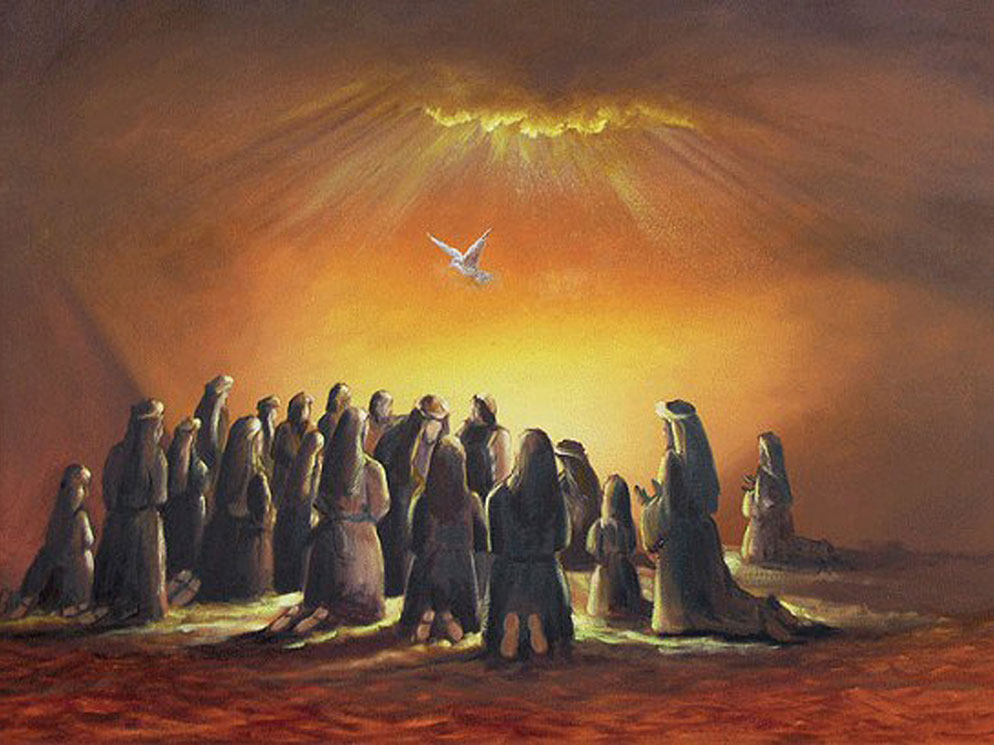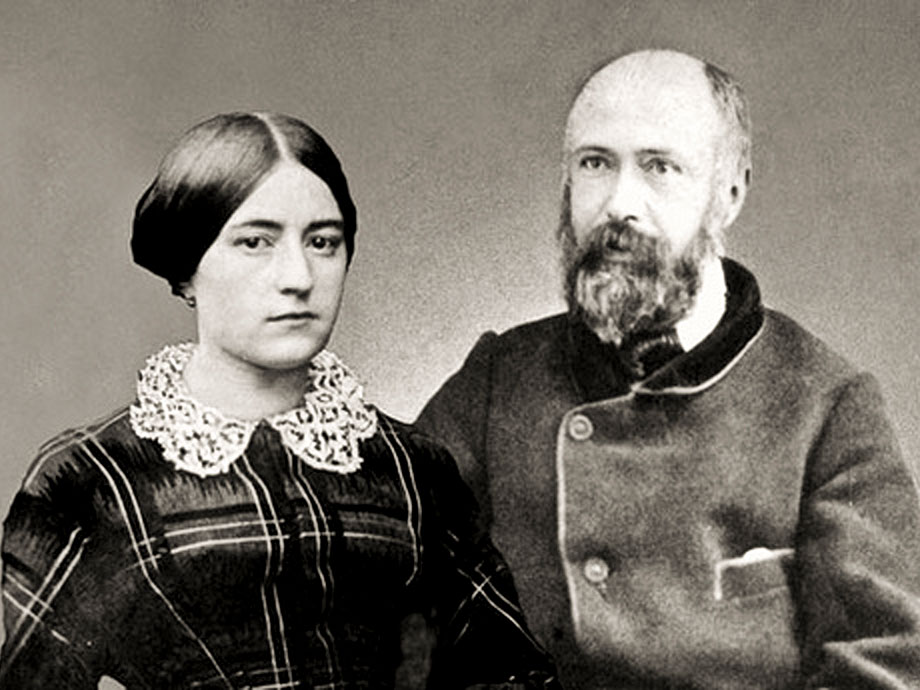“Let the dead bury their own dead. You go and proclaim the Kingdom of God.” (Luke 9:60)
The Israelite society was known for strong filial piety. Burying the dead was a religious obligation. People mourned for Jacob for 70 days (Gen 50:3). By saying “let the dead bury their own dead,” Jesus could not have meant neglecting this filial duty. Most scholars interpret the words to mean, ‘let the spiritually dead bury the physically dead; your mission is to serve the Kingdom with mounting generosity.’ The spiritual quality referred to in this passage should be seen in relationship to other virtues expected of evangelical workers, e.g., austerity of life (“the Son of Man has nowhere to lay His head” – Lk 9:58), or singleness of purpose (“…no one who looks back is fit for the Kingdom…” – Lk 9:62). Taken together, these passages give us an idea of the radical nature of the evangelical demands.
The evangelizer should be detached from anything that can be an obstacle on the way to the Kingdom, whether they are family members or family assets that enfeeble one’s loyalty. In fact, step by step, Jesus is bringing into existence a new family, a new community. He says: “my mother and brothers are those who hear the Word of God and obey it” (Lk 8:21). He had asked years earlier: “Did you not know that I must be about My Father’s business?” (Lk 2:49). A new set of relationships is being built up among those who take God’s Word to heart. But what is striking about His entire endeavor is that everything speaks of a compelling radicality – ‘forgetting self’, ‘taking the cross’ (Mt 16:24).
A SENSE OF URGENCY
German philosopher Georg Wilhelm Friedrich Hegel, a key figure in German Idealism, thought that it was only the anxiety created by a warlike situation that would generate generosity in a nation and stir a spirit of sacrifice and venture in citizens. He had seen the revival of the German national spirit after their defeat by Napoleon. In the same way, people begin to respond generously only in a situation of emergency. Maybe, we are in such a situation today, in a situation of general crisis. Most accepted beliefs and community values are questioned or outright rejected; all respected philosophical and religious concepts are under suspicion. Can we build up our determination on a warfooting and come to the defense of communities, cultures, values, principles, and faith itself, as Mother Teresa did when she moved into the streets of Calcutta in the aid of the ‘poorest of the poor’, or as Archbishop Romero did when he plunged himself into a struggle on behalf of justice? Can we draw energies from the Word of God as they did and share it with others?
The Gospel is precisely a declaration of emergency. “The Kingdom of God is close at hand. Repent, and believe in the Good News” (Mk 1:15). It is already time… it is getting late. “The night is nearly over, day is almost here. Let us stop doing things that belong to the dark…” (Rom 13:12). The announcement of the Kingdom is an urgent call to reject values that degrade the human person, “Let us live decently as people do in the daytime; no drunken orgies, no promiscuity or licentiousness, and no wrangling or jealousy” (Rom 13:13). Repent. Speaking at the Angelus on June 23, Pope Francis spoke in the same tone: “Do not be afraid to go against the current…when they propose rotten values…”
CHOOSING THE KINGDOM
The rejection of debasing values is the first step towards the Kingdom. Welcoming another set of values is its completion. The new set of values may be summarized in this manner: “Fill your minds with those things that are good and deserve praise; things that are true, noble, right, pure, lovely, and honorable” (Philip 4:8). A message like this has a liberating power; it is capacitating. It sets people free from obstacles to the Kingdom: overattachment to things, persons, even to a negative version of themselves. You are made clean “because of the Word that I have spoken to you” (Jn 15:3).
However, the Word of God is demanding. It is “alive and active, sharper than any double-edged sword. It cuts all the way through, to where the soul and the spirit meet, to where the joints and marrow come together. It judges the desires and thoughts of man’s heart” (Heb 4:12). When we feel drawn to act against the values of the Kingdom, the sword reaches where our thoughts and desires are formed, both in matters big and small. Fidelity within the family, responsibility within society, accountability in personal choices, and genuineness in all things: these are things that cost. That is what Jesus meant when He said “If anyone wants to follow Me, he must take up his cross every day…” (Lk 9:230).
As isolated individuals, it is difficult for us to take such radical decisions and remain loyal over long periods of time. We need the sturdiness that comes from belonging to a community that takes its faith seriously, e.g. to a religious community, a small Christian community, a prayer group, a parish community, a fervent family. A community is kept together by the bonds of love. But loving others is risky, since it always involves commitment. On the other hand, when we build up enough generosity to love, we gain access to the immense resources of another person, including his/her spiritual energies. These are multiplied a hundred times if we choose to belong to a community of religious stalwarts, people who are determinedly dedicated to the Kingdom. They can shake the world with their faith.
THE LURES OF THIS WORLD
But, unfortunately, we are living in an era in which people, as a whole, give less importance to matters of faith than to acquiring of wealth. An upward social mobility that has become possible for talented and hardworking people in all the newly-emerging nations has created a nouveau riche. Today their ambition is not about food, clothes and shelter, but about show and display and an eagerness to outshine others and make them feel small. The problem is not that these consumers want more… they want more than others who, in turn, want more than others still. Thus we are all pulled into a rat race, an unending competition which slowly moves towards the point of senselessness. People work harder to pile up more and more trinkets and trivialities. They are getting richer and richer but never have enough.
How much is enough? Centuries ago Epicurus had said: “Nothing is enough for the man for whom enough is too little.” Pursuit of money alone does not bring happiness nor qualitative well-being. Life ends up in boredom. A few go the way of wasteful spending and a display of affluence; gradually, they move on to addictions, alcohol, drugs and sex, and not a few end up in suicide. Others choose the path of cutthroat competition, unethical profit-making, and even elimination of the rival. They have no qualms of conscience about pressing towards an unjust society and ruining the environment. Meantime, the less fortunate ones, unequipped to compete and unable to sustain their living standards, keep sinking lower and lower in the social ladder. And the gap keeps widening.
THE ENSLAVING SYSTEM
The tragedy today is that entire nations and societies are opting for this form of self-abasement, making economic growth their sole goal. They are all swept in that direction in order to satisfy the mounting hunger of their citizens for consumer goods. More and more people find themselves opting for this form of slavery of their own choice. Social observers have commented that what the people under communistic regimes really wanted when they rejected communism was not so much the humanizing value of freedom as the enslaving possession of consumer goods available in abundance in capitalistic countries. The end result is that all are moving in the direction of enslavement one way or another. We may neither realize it, nor will we readily admit it.
The same observers have remarked, rather cynically, that many people in the new democracies claim to be lovers of democracy not because that system respects the dignity of people, but because it proves to be the most effective instrument for the pursuit of power and of unearned money. Power-hungry politicians and profit-worshipping entrepreneurs join forces to develop the subtle skill of winning the support of those citizens who have no sense of social responsibility. And the disaster is complete. The gap between the rich and the poor keeps increasing, and the poor remain ill-equipped to compete due to lack of access to education.
Today, corrupt practices have risen to the world stage. No one can plead to be totally innocent. For, corruption is not only about the wrong use of money, but also about the wrong use of power. It is not only about taking bribe in government offices, but also about various forms of manipulation and blackmailing, political arm-twisting, pushing a particular party’s or ethnic group’s political interests through underhanded ways, unfairness of dominant classes and communities to weaker sections, the imperceptible manner of bulldozing or marginalizing legitimate claims, silencing the voices of the weaker communities, physical elimination of political opponents or commercial competitors, interfering with election processes, using ‘strong men’ for vacating land or realizing bills, fixing matches, selling drugs. Corruption also has reference to hidden transactions, unpaid salaries, underpaid employees, unfair pressure, injustice of every kind.
SEEKING THE KINGDOM
These are situations when we must develop the art of standing aside to reflect. We must become aware of the demands of the Kingdom. We must deepen our inner selves, catching the faith-vibrations of the believing community. We whisper a prayer: “Look not on our sins but on the faith of the Church” (Roman Missal). It is said that the Roman Emperor Marcus Aurelius wrote his Meditations while he was on a campaign in Parthia. He had the ability to stand apart and reflect amidst bloodshed and battle cries and pass on the fruit of his reflection to others. He wrote, “So, one thing is worth a lot, to live out one’s life with truth and justice, and with kindliness toward liars and wrong doers.”
Similarly, Teilhard de Chardin put into writing some of his deepest spiritual insights while serving in the army during World War I. He shook the world from the trenches with his Kingdom thoughts, the vibrations of which have not died out yet. In the midst of fierce fighting, he knew how to withdraw to his inner world to rediscover his deeper self and his mission to announce the Kingdom. William Wilberforce was a young man of 24 when he went through a conversion experience. He took the fruit of his encounter with God to his struggle against slavery. It was his uninterrupted effort of 24 years that brought about the abolition of slavery in Great Britain and the colonies.
Thus, ardent believers have announced the Kingdom in the midst of their human struggles. They took these words of Jesus seriously: “Go and proclaim the Kingdom of God,” and lived them out in contexts. They did this because they believed in a Self-Emptying God who leads the whole of reality through the ebb and flow of human history, and who demands from us not the minimum, but the maximum.
We are part of Christ’s Body, whose DNA, consequently, runs through our veins. It is time that we give up living self-absorbed lives, keep distance from the acquiring lust, give our lives to taking the Gospel to the poor, the oppressed, the weak, to all…to the ends of the earth.

